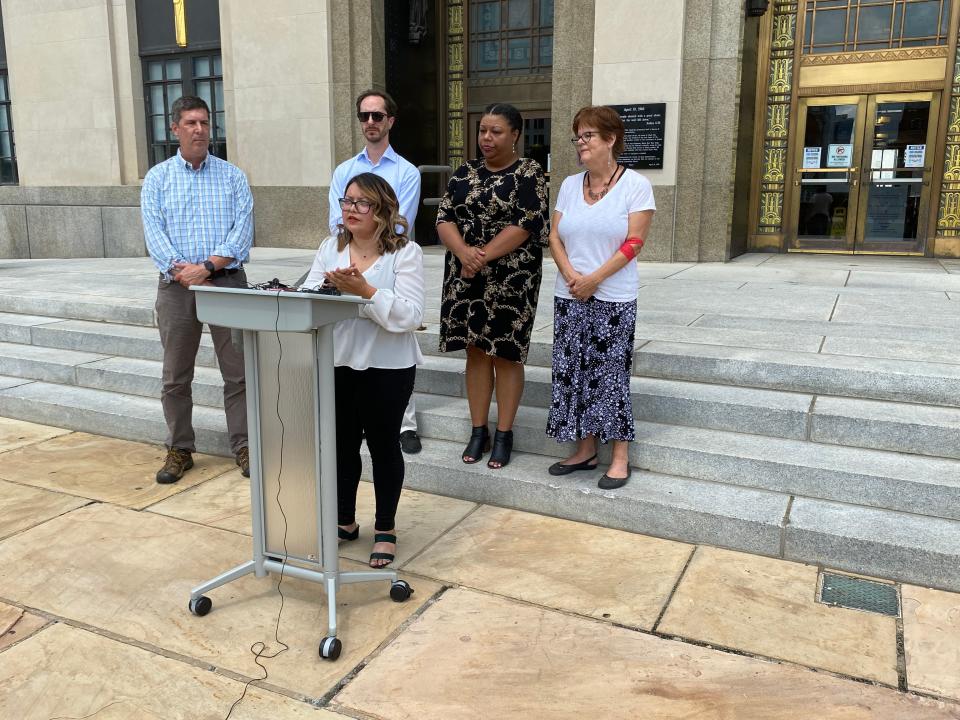Teen pregnancy and STI rates show Tennessee has a sex ed health crisis
Sex education is not mandated in Tennessee public schools, and if schools decide to provide education, the curriculum is not required to be comprehensive.
The only exception is for schools located in counties where the pregnancy rate exceeds 19.5/1,000 for females aged 15-17, which by 2018 data, includes at least 20 counties in our state.
These schools are only required to teach a family life education program, which must promote topics like abstinence and reserving the expression of sexual activity for marriage. Despite being a harm reduction method, contraceptive options such as condoms and oral contraceptive pills are not required to be taught. Instead, schools are required to inform students about the process and benefits of adoption.
Additionally, in these counties, parents and guardians have the option to remove their children from any type of sexual education curriculum, and as of 2021 this includes LGBTQ-related instruction.
Tennessee ranks near the bottom of state on key indicators
Teen sexual health in Tennessee lags behind other states. In Tennessee, only 32.2% of high schools taught students all 20 critical sexual health education topics outlined by the Centers for Disease Control (CDC), as compared to 33% of schools in Georgia and 65.9% of schools in California.

Tennessee is ranked 44th out of the 50 states in rates of teen pregnancy at 21.5 per thousand, with the national average being 13.5 per thousand. Georgia is not far behind at 36th and California is ranked 12th.
Increased rates of teen pregnancy are strongly correlated with higher rates of unemployment, leaving school before completion of a high school degree, and poverty. Teen pregnancies are also associated with worse maternal health outcomes including increased risk for maternal depression and intimate partner violence in the pregnancy periods.
The harms of inadequate sexual education for teens are not limited to unplanned pregnancies. One in six high school-aged females reported intimate partner violence in 2019, which is the highest across the U.S. and is nearly double the national average.
As of 2021, the average number of teens ages 15-17 who were diagnosed with chlamydia, gonorrhea, or syphilis, all sexually-transmitted infections (STIs), was 16.6 per 1,000. These adverse events associated with poor teen sexual health education demonstrate the need for a more robust education approach in Tennessee.
Why holistic sex education benefits young people
Comprehensive sex education is associated with numerous health benefits for teenagers. According to a study conducted at New York University, increased federal funding for more comprehensive sex education led to a 3% reduction in teen pregnancies at the county level.
Furthermore, a landmark CDC study investigated the relationship between comprehensive risk reduction programs, abstinence education programs, and risk of adolescent pregnancy, HIV, and STI’s.

The study found that comprehensive risk reduction programs were effective in reducing both teen pregnancy rates and the acquisition of STIs.
A number of other studies have also shown that abstinence-only programs are ineffective at reducing both teen pregnancy and STI risk.
Thus, even if sexual education curricula are not required by state law, more schools that participate in teaching medically accurate information about these topics will reduce teen pregnancies and STIs.
Nikita Bastin, Avery Bogart, Zoe Finer, Jeewoo Kim and Jessie Sims are medical students in Nashville. The views expressed by the authors are personal in nature and are not intended to represent the views of their institution.
This article originally appeared on Nashville Tennessean: Sex education crisis in Tennessee: Teens need comprehensive education

